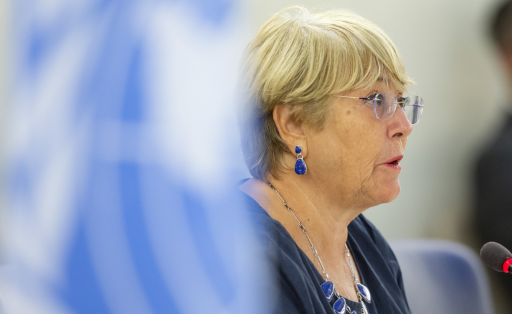




With a motion for a future debate on China's human rights crimes in Xinjiang, supporters want to buy time to pave the way for a resolution. It would be the first resolution against China in the history of the Human Rights Council. The initiators are optimistic that the motion will be passed in Geneva next week. The long-term goal is to install a special rapporteur for the People's Republic.
By Marcel Grzanna

In Germany, the UN report on the human rights situation in Xinjiang is causing harsh reactions. The German Foreign Office calls for the immediate release of all detainees, while human rights politicians demand a discussion about Volkswagen's involvement in the region. Beijing itself was blindsided by the directness of the accusations.
By Marcel Grzanna

Michelle Bachelet presented the UN report on the human rights situation in Xinjiang at the end of her term in office. The document is a reckoning with the Chinese government, which tried to prevent its publication until the very end. The paper clearly goes beyond the rhetoric that she had usually displayed toward Beijing.
By Marcel Grzanna

For months, the UN High Commissioner for Human Rights, Michelle Bachelet, has been delaying the publication of a report on the situation of the Uyghurs in China. Now Special Rapporteur Tomoya Obokata reacted first and made serious accusations against the government in Beijing. The timing is delicate. Just last week, the People's Republic ratified two conventions against forced labor.
By Marcel Grzanna


Because of the one-child policy, Chinese authorities have prescribed abortion, sterilization, and contraceptives such as intrauterine devices (IUDs). So it is natural to assume that the dramatic decline in births in Xinjiang reflects the impact of such measures. But the reasons are more complex and also socioeconomic, analyzes family planning expert and author Yi Fuxian of the University Wisconsin-Madison.
By Redaktion Table
